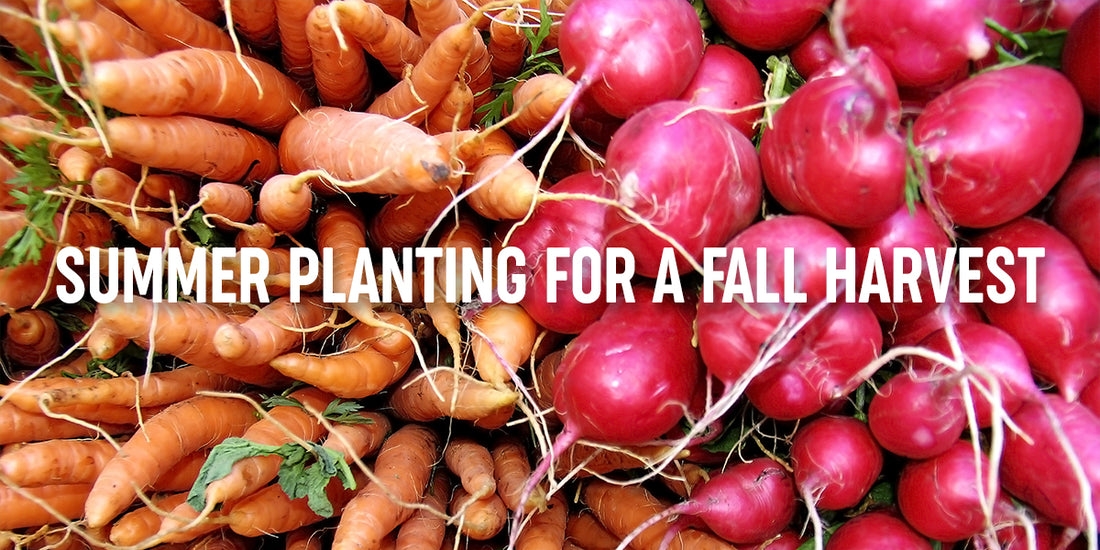
Sow Now, Reap Later: A Guide to Summer Planting for Fall Harvest
Share
As the vibrant colors and warm sunshine of summer envelop us, it's the perfect time to indulge in the joys of gardening and plan for a bountiful fall harvest.
Summer planting sets the stage for an abundant and rewarding season of fresh, homegrown vegetables and herbs. With careful consideration and a touch of green thumb, you can create a thriving garden that will grace your table with delicious, nutritious produce when autumn arrives.
When it comes to summer planting for a fall harvest, timing is crucial. You'll want to choose crops that have a shorter maturity period, allowing them to reach their full potential before the arrival of frost. Begin by assessing your growing zone and the average first frost date in your area. This information will help you select the right plants that can thrive in the remaining warm weeks and cool nights of late summer and early fall.
One popular option for a fall harvest is salad greens. Varieties such as lettuce, spinach, and arugula can be sown in late summer, as they prefer cooler temperatures. These leafy greens grow relatively quickly and can often be ready for harvest within a month or two, providing you with a continuous supply of fresh, crisp salads.
Root vegetables, like carrots and radishes, also make excellent choices for a fall harvest. By planting them in mid to late summer, you give them ample time to mature before the colder weather sets in. The cool autumn temperatures enhance their flavor and texture, resulting in sweet and crunchy roots that are perfect for soups, stews, or roasted dishes.
Herbs are another delightful addition to your fall garden. While some herbs, like basil, may not thrive in cooler weather, others, such as parsley, thyme, and sage, are more resilient and will continue to flourish as the season changes. Planting these aromatic herbs in summer allows them to establish their roots and gain strength, ensuring a bountiful supply of flavorful seasonings well into fall.

As you tend to your garden throughout the summer, remember to monitor for pests and diseases. Regularly inspect your plants for signs of damage or infestation, and take appropriate action to protect your harvest. Organic pest control methods, such as companion planting and natural repellents, can help maintain a healthy balance in your garden.
Lastly, as you embark on your summer planting journey, embrace the joy and fulfillment that comes with nurturing and witnessing the growth of your plants. Gardening offers an opportunity to connect with nature, reduce stress, and savor the satisfaction of reaping the rewards of your labor. So, gather your gardening tools, dig your hands into the soil, and let the magic of summer planting unfold, bringing forth a delightful fall harvest to savor and share with loved ones.
